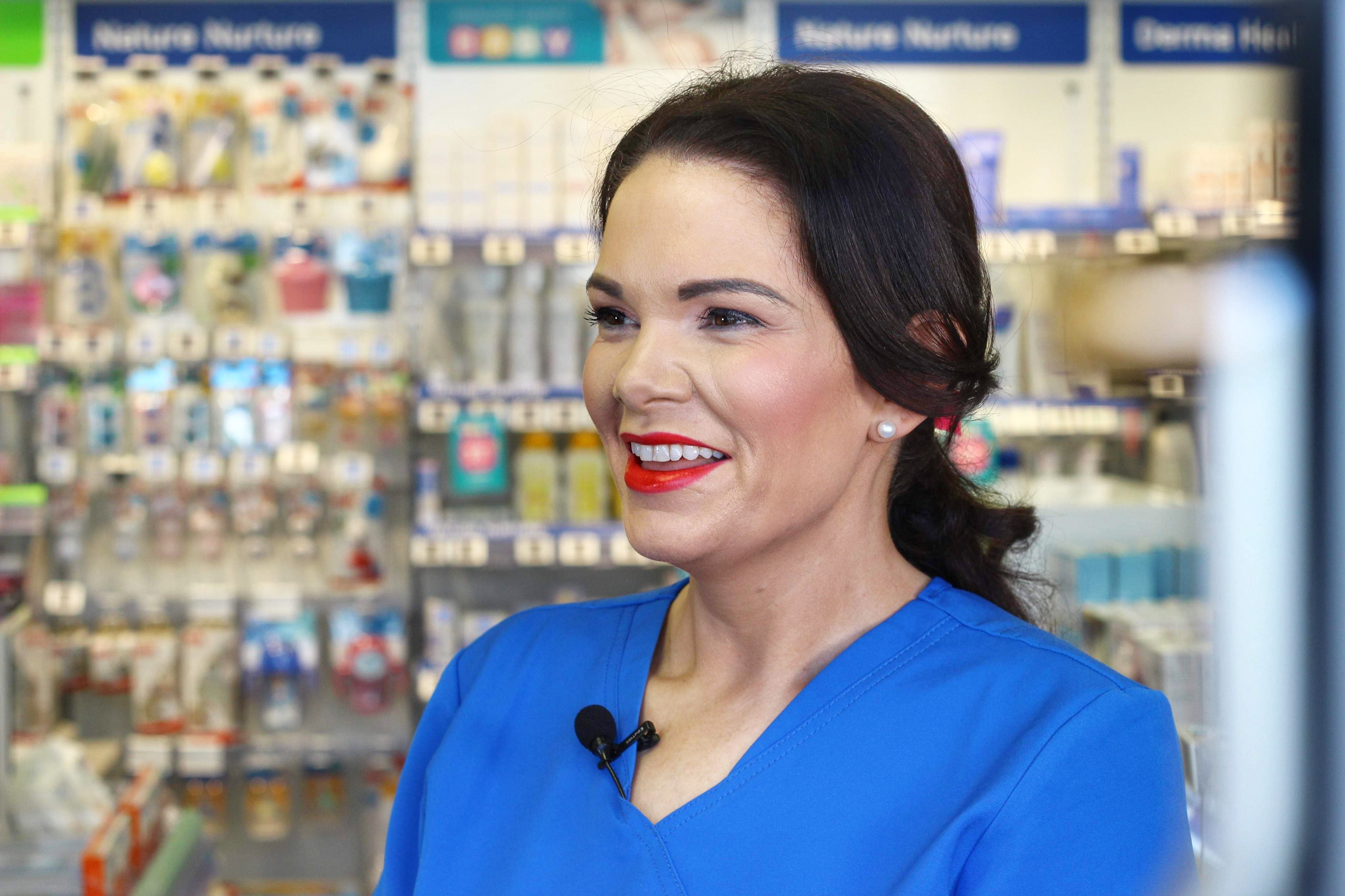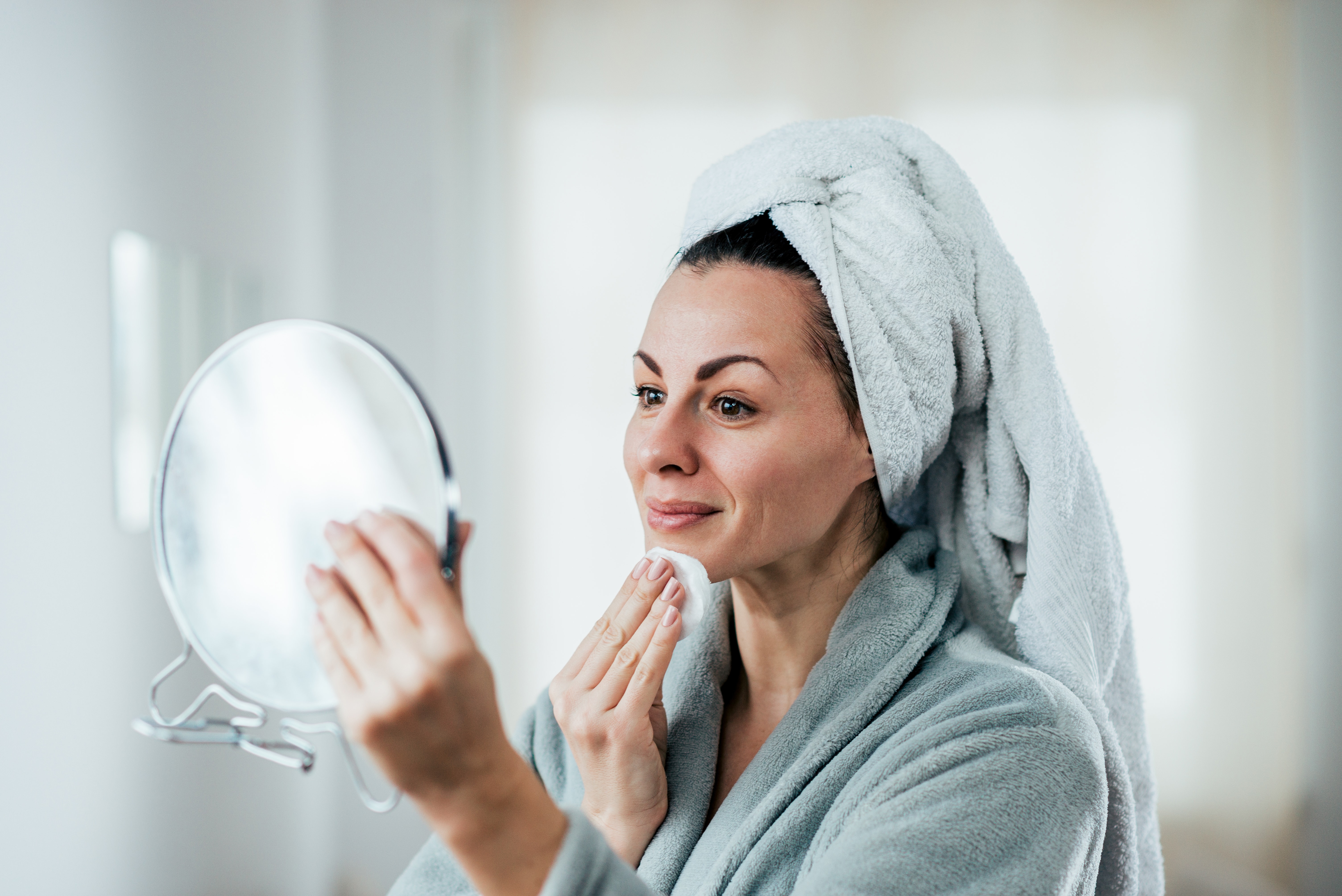Our first contribution from Dermatology Nurse and our skincare expert, Selene Daly, focuses on rosacea – a common skin condition many people struggle with, particularly in Ireland.
 (Selene Daly, dermatology nurse)
(Selene Daly, dermatology nurse)
Rosacea is a common but poorly understood long-term skin condition that mainly affects the face.
Symptoms
- Symptoms begin with episodes of flushing and blushing of the cheeks and nose
- Sufferers may experience spots and persistent redness of their skin
- Small blood vessels in the skin can become visible
- In the most severe cases, the skin can thicken and enlarge, usually on and around the nose
- Symptoms usually begin between the ages of 30 and 50
Who it affects?
Rosacea most commonly affects fair-skinned people from northern Europe and is estimated to affect up to 1 in 10 Irish people. It’s is humorously referred to as the ‘curse of the Celts.’
Rosacea affects twice as many women as men, although it is usually more serious in men when it does strike.
Triggers
While the exact cause of rosacea is unknown, several triggers have been identified that may exacerbate symptoms in some people. These include:
- exposure to sunlight
- stress
- cold weather
- hot drinks
- alcohol
- eating certain foods, such as spicy foods
Treatment options
There is no cure for rosacea, but treatments are available to control the symptoms.
- Making lifestyle changes, such as avoiding possible triggers and wearing sunscreen can be a good way of controlling the symptoms of facial flushing (i.e. when your skin turns red)
- Treatments for rosacea can start with creams or gels and can be prescribed by your G.P. these include ingredients such as metronidazole, azelaic acid and topical ivermectin
- For more serious symptoms of spots and pimples, oral antibiotics may be recommended. In this case, the antibiotics are used for their ability to reduce inflammation of the skin rather than for their ability to kill bacteria
- In some cases, a medication called Roaccutane may be prescribed to treat acne lesions. This is only available through a consultant dermatologist
- The symptoms of visible blood vessels associated with rosacea are known as telangiectasia. Treatment for telangiectasia will usually require a referral to a dermatologist
- Laser treatment is one of the most widely used treatments for telangiectasia. Lasers are narrow beams of light that are aimed at the visible blood vessels on your face. The heat from the lasers damages the dilated (widened) red veins and causes them to shrink so they are no longer as visible
- It may be possible to disguise patches of persistent red skin using specially designed 'camouflage' make-up. Vichy have a product called Dermablend which is excellent at covering permanent redness, which is available in selected CarePlus Pharmacies.
- Thickened skin (rhinophyma) is a symptom of rosacea that often affects the nose. If you have severe rhinophyma, your GP may refer you to a dermatologist or plastic surgeon.

For more information on rosacea, log on to www.irishskin.ie or ask our friendly CarePlus Pharmacists for advice on what products would suit you best.

